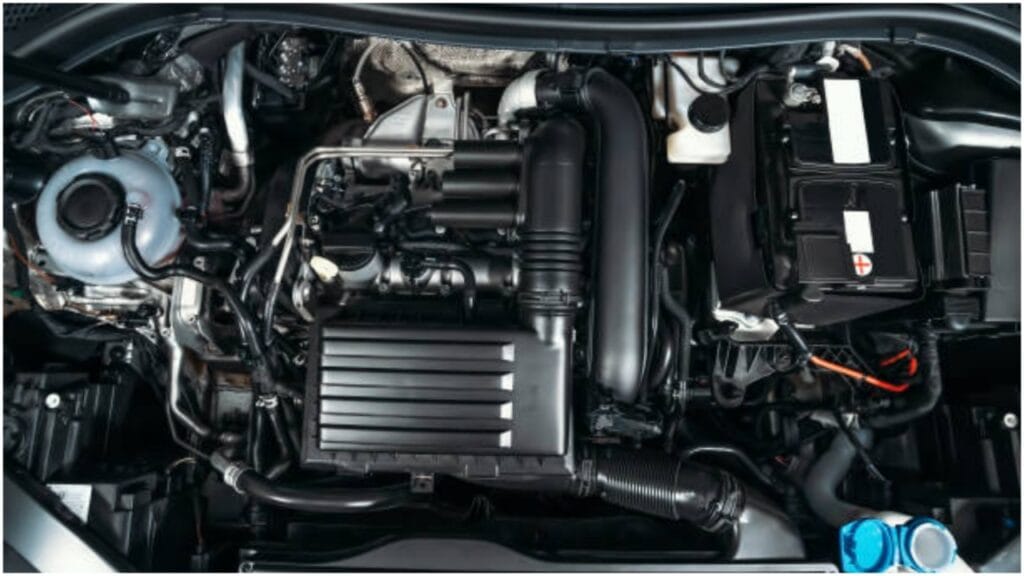I know how frustrating noisy lifters can be. That constant ticking makes your car sound like it’s falling apart. But don’t worry—I’ve been there too, and I’ve figured out exactly what works. With the right oil, you can quiet those lifters and keep your engine running like a dream.
So, what’s the best oil for noisy lifters? The short answer: a full synthetic oil with cleaning additives and friction modifiers. Oils with zinc (ZDDP) and molybdenum help reduce wear and keep things running smoothly. Regular oil changes and using the right viscosity make a huge difference. If your lifters are ticking, this is the first thing to try.
But oil isn’t the only thing that matters. Sometimes, lifter noise means there’s something else going on. Keep reading, and I’ll walk you through everything you need to know—why it happens, how to fix it, and what to do if oil alone doesn’t work!
Why Are Your Lifters Noisy?
If your engine sounds like a ticking time bomb, don’t panic—I’ve been there too. That annoying lifter noise usually means your engine isn’t getting enough oil where it needs to go. And trust me, ignoring it won’t make it better. Let’s go over the main reasons this happens and how to fix it.
- Old, Dirty Oil – Over time, oil gets thick and gunky, clogging up tiny passages in the engine. Lifters don’t get the oil they need, and that’s when the ticking starts. Fix it: Change your oil and use a good full synthetic that helps clean out the buildup.
- Wrong Oil Viscosity – If the oil is too thick, it moves too slowly. If it’s too thin, it won’t protect the lifters. Either way, they’ll make noise. Fix it: Always use the oil recommended for your car (like 5W-30 or 10W-30). If it’s noisy, a slightly thicker oil might help.
- Low Oil Pressure – If oil isn’t flowing well, the lifters won’t work right. A weak oil pump or clogged passages can cause this. Fix it: Check your oil pressure. If it’s low, you might need to clean the engine or replace the oil pump.
- Worn-Out Lifters – Sometimes, lifters are just too old and worn down. No amount of fresh oil will fix them. Fix it: If an oil change doesn’t help, you might need to replace the lifters.
I know how annoying that ticking sound is, but don’t worry. Most of the time, the right oil can get your engine running smooth and quiet again!
Choosing the Right Oil
I’ve made the mistake of grabbing just any oil off the shelf, thinking it would fix my noisy lifters. Spoiler alert—it didn’t. The ticking got worse, and I had to learn the hard way that not all oils are the same. If you want to quiet those lifters, you need oil that flows well, cleans up gunk, and reduces friction. Here’s what works best.
- Full Synthetic Is the Way to Go – I used to think any oil would do, but synthetic oil is a game-changer. It flows better, keeps the engine clean, and lasts longer. What to do: Stick with good brands like Mobil 1, Royal Purple, or Valvoline. They work!
- The Right Thickness Matters – If the oil is too thick, it takes forever to reach the lifters. Too thin, and it won’t protect them. What to do: Check your manual. Most cars do well with 5W-30 or 10W-30. If your car is older and lifters are loud, a slightly thicker oil might help.
- Additives Make a Difference – Not all oils have the right stuff to stop lifter noise. Some just don’t cut it. What to do: Look for oils with zinc (ZDDP), molybdenum, or other friction reducers. These help the lifters move smoothly and stay quiet.
- High-Mileage Oil Works Like Magic – If your car has been running for years, your engine needs extra care. What to do: Use high-mileage oil. It has special conditioners that help worn-out parts, including lifters. I’ve seen it work wonders on older engines.
I wish I had known all this sooner. The right oil makes a huge difference, and if you choose wisely, that annoying ticking sound can be a thing of the past. Trust me, your engine will thank you!
Additives That Work Like Magic
So, let me tell you about these additives that seriously work like magic. I’ve tried a few myself, and honestly, they’re like little secret helpers for your car. You know, those small bottles of liquid or powder you can add to your fuel or engine? Yeah, those. They can make such a difference.
Fuel system additives, for example, clean out the fuel injectors, and believe me, when that happens, your car just runs smoother. It feels like you’re driving a new car again. Engine oil additives? They help your engine last longer by reducing all that annoying friction.
Your engine stays happy, and trust me, that’s a big deal. Oh, and transmission additives—those smooth out the shifting, making your ride way more comfy. And don’t even get me started on fuel injector cleaners. They clear all the gunk, making everything run so much more efficiently.
It’s like a breath of fresh air for your car. Even octane boosters are awesome. They make your car more powerful and stop that annoying knocking sound. I can honestly say, these additives might be small, but when they work, it feels like pure magic!
How to Use the Right Oil

Alright, let’s chat about oil for a minute. So, we all know oil is super important for keeping our car running smoothly. But, here’s the thing—I’ve learned that using the right oil makes all the difference. It’s not just about picking any oil off the shelf and calling it a day. Nope, you gotta choose carefully.
The first thing I always do is grab my car’s manual. I know it sounds kinda boring, but it seriously makes life so much easier. The manual tells you exactly what type of oil your car needs, and trust me, it’s always spot on. Some cars need fancy synthetic oil, and others do just fine with the regular kind. If you’re ever unsure, just check the manual, and you’re good to go.
Now, let’s talk about those numbers you’ll see on the oil containers—like 5W-30 or 10W-40. At first, I didn’t get what those meant either, but once I figured it out, it was a game-changer. The number before the “W” tells you how thick the oil is when it’s cold.
So, if it’s freezing where you live, you probably want a thinner oil that gets moving fast. The number after the “W” is for when your engine is all hot and working hard. It tells you how thick the oil stays when it’s warm. Thicker oils are better for hotter weather or if you’ve got a powerful engine.
Here’s another thing I’ve learned—the cheap oil might seem tempting, but it’s worth spending a little extra to get the good stuff. I used to go for the cheap option, but the right oil helps your engine last longer and run smoother. Worth it.
And, seriously, don’t skip those oil changes. I used to wait way too long between them, thinking it’d be fine. But nope, regular oil changes keep everything running just right, and it saves you from bigger problems down the road.
So yeah, picking the right oil isn’t too hard once you get the hang of it. Just follow the car’s manual, pick the right oil for your engine, and keep it changed regularly.
Should You Flush the Engine First?
So, I’ve been wondering this myself—”Should I flush the engine before I change the oil?” I mean, it sounds like a good idea, right? Like giving the engine a nice, fresh start. But after a little research and my own experience, I’ve realized it’s not always necessary.
Here’s the thing—some people love the idea of an engine flush. They think it’ll clean out all the old gunk and make everything nice and shiny. And yeah, if your car’s been running for a while without a proper oil change or if it’s super dirty, maybe a flush could help.
It’s kinda like giving your engine a deep clean, right? But, honestly, if you’ve been keeping up with regular oil changes, your engine doesn’t need a flush. It’s like when you clean your room often—you don’t need to deep clean every time, just keep it tidy.
From my experience, as long as you’re changing the oil on time and using the right kind of oil, your engine stays clean enough. Flushing too often might even push dirt and stuff into places it shouldn’t be, which is, well, not ideal. It’s like scrubbing a surface too hard—you might just make a mess.
So, should you flush the engine? Honestly, probably not, unless it’s been a long time since your car had some TLC. If you’re good with regular oil changes, don’t worry about flushing it out. Just keep things running smoothly with those oil changes, and your engine will thank you!
Regular Maintenance Keeps Lifters Quiet
So here’s something I’ve learned from experience—if you want to keep your car’s lifters nice and quiet, regular maintenance is the way to go. Trust me, I’ve had that annoying tapping sound before, and let me tell you, it’s not fun. But after some digging and talking to people who know cars, I found out that keeping up with maintenance can keep those lifters quiet.
So, lifters help with the engine valves opening and closing. But when they’re not getting enough oil, or if the engine gets all dirty inside, they can start making noise. That’s when you hear that ticking or tapping sound.
It can be super annoying. But here’s the good part—if you’re changing your oil on time and making sure your engine stays clean, the lifters can keep doing their job without making a sound. They get the lubrication they need, and everything runs smoothly.
I’ve noticed a huge difference since I started staying on top of oil changes. The car runs quieter, and the engine just feels better overall. No weird sounds, no ticking, just a smooth ride. It’s honestly like a little bit of TLC for your car. And while oil is a big part of it, just making sure everything’s running clean and getting checked out helps a lot too.
If you want to keep your lifters from making noise, just stick to regular maintenance. I promise it does make a difference! Your car will thank you with a nice, quiet ride.
Conclusion
Here’s the thing—keeping up with regular maintenance is a total game-changer for your car. I’ve learned from personal experience that if you stay on top of things like oil changes and cleaning the engine, it keeps everything running smoothly and quietly.
I mean, who wants to deal with that annoying tapping sound from the lifters, right? By just doing the basics, like using the right oil, checking the lifters, and changing the oil on time, you can keep your engine happy and healthy. It’s all about giving your car the care it deserves.
Honestly, it’s not hard to do—just follow the schedule, keep it clean, and everything stays running like a dream. Trust me, when you put in the effort, you’ll notice the difference. A quiet engine and a smooth ride? That’s worth it. So, give your car that little bit of TLC, and it’ll pay off big time!

